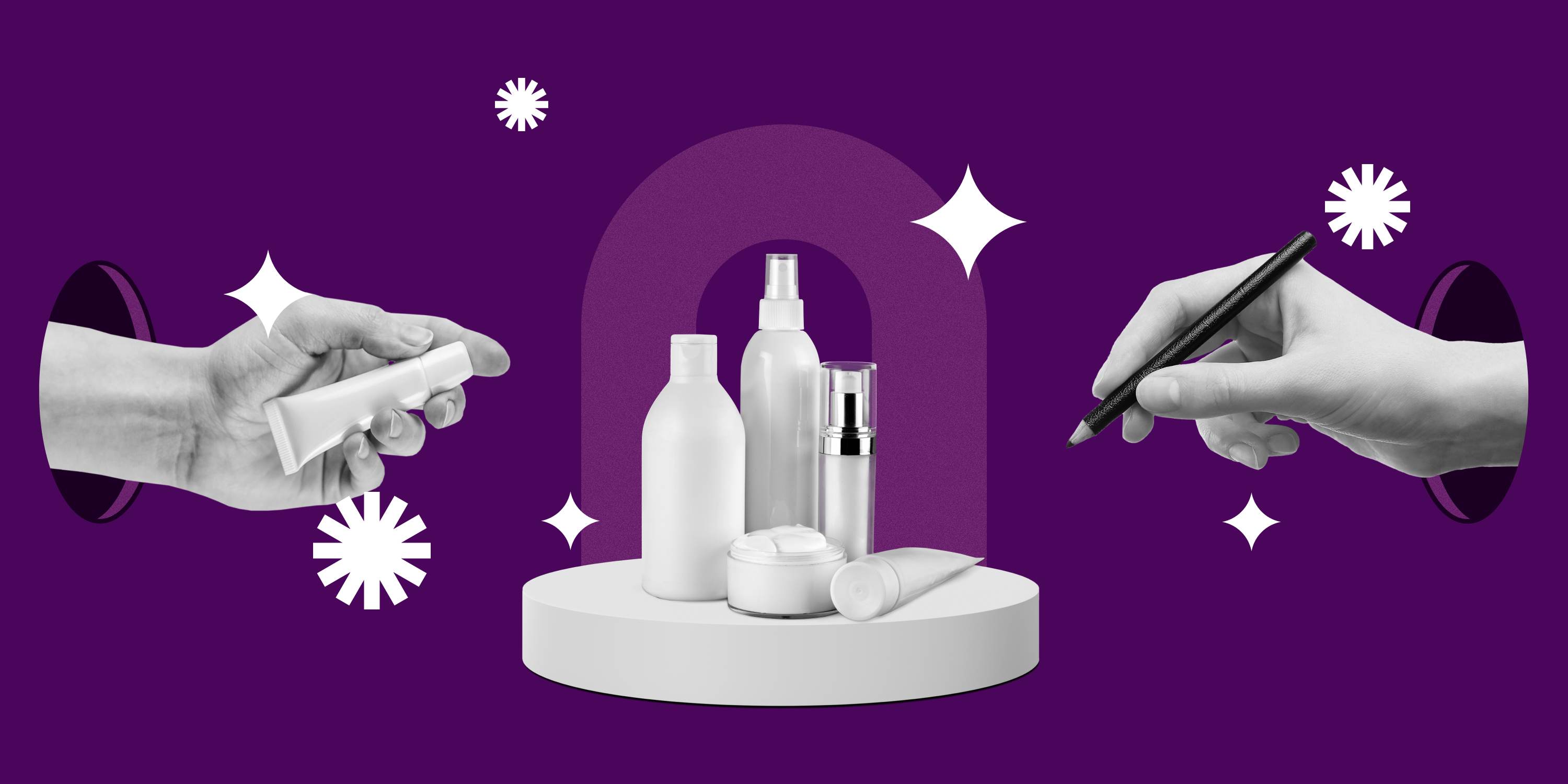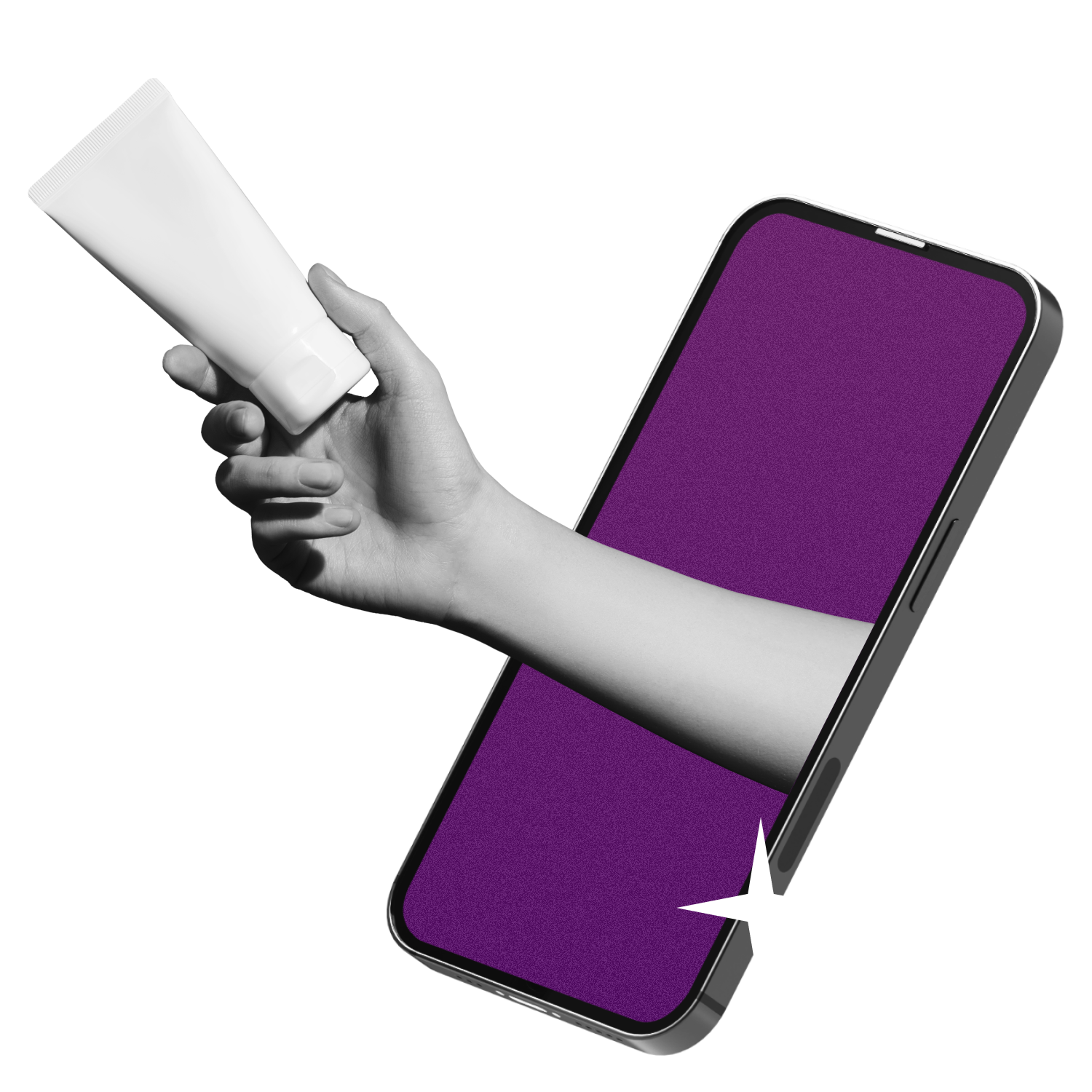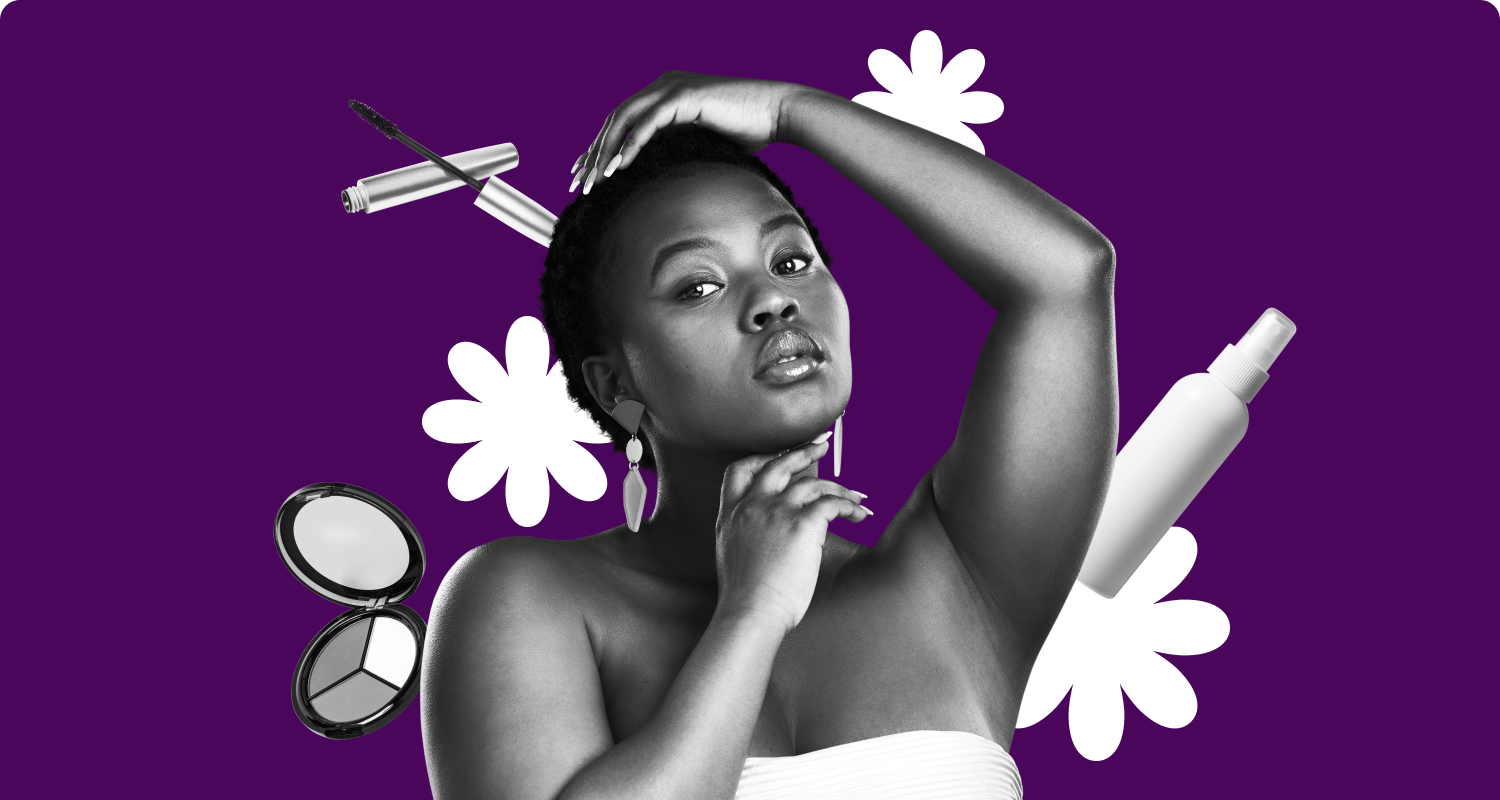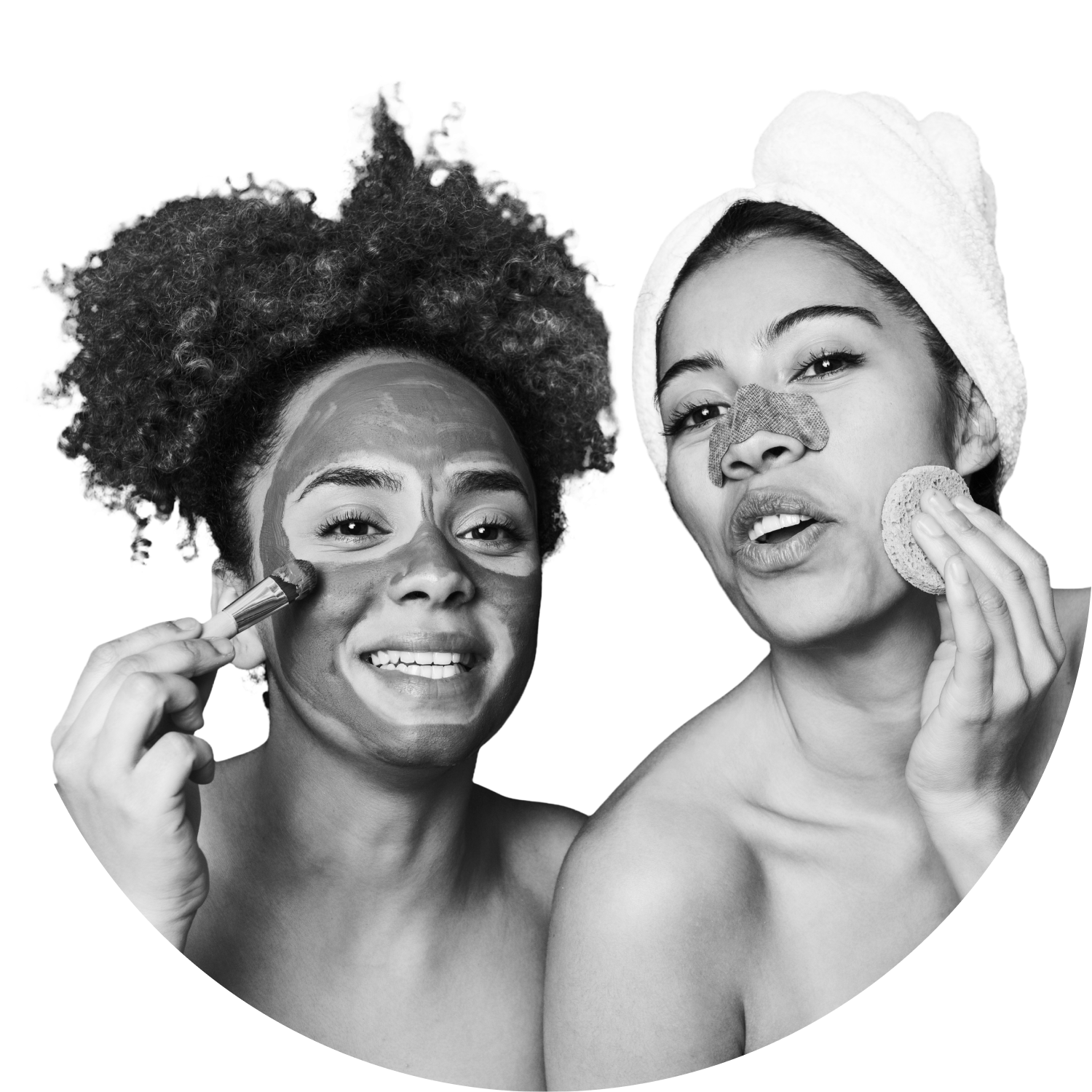
THE 2023 CPG CUSTOMER JOURNEY
Beauty Products
CONTENTS
Amazon is Tops for Beauty Search, but Walmart Cuts Across Generations
93% of beauty shoppers search online for beauty products, and the most popular starting place for those searches is Amazon by a long shot, chosen by 37% of respondents. This is nearly fifteen percentage points higher than the second-most chosen starting place, Walmart, and more than four times the share of respondents who start beauty searches on a beauty retailer’s website or app.
GENERATIONAL INSIGHTS
Although Walmart trailed Amazon as beauty customers’ first choice for searching products, its appeal was still strong and remarkably consistent across generations for those looking for beauty products online. From Gen Z through baby boomers, Walmart’s lowest search share was 23% for Gen Z and millennials, and its largest share was 26% for Gen X. Amazon was more popular for beauty search, but it also saw a wider range of results with 35% of Gen Z making it their first pick, compared to 44% of baby boomers.
TikTok Rivaling Google Search? Not Just Yet
While there have been some reports of younger generations turning to TikTok in order to search for products over traditional search engines, just 2% of respondents chose social media platforms as the place they’d start a beauty product search on, and no generation saw more than 4% of its respondents select social media. That said, social networks are hugely important to beauty product discovery, with 45% of respondents saying they recall seeing or hearing about a product through social media that they later went on to purchase in the past year, a higher share than television!
For younger generations, this is particularly true on TikTok, with 48% of all Gen Z respondents saying it’s the social media platform where they’re most likely to discover new beauty products. Meta-owned properties are still a key part of beauty product awareness, however, with Facebook garnering the highest share of all responses as the social platform most likely to uncover new beauty products, and Instagram placing third behind TikTok.

How Influential are Influencers?
Fully 70% of respondents said they’d purchased beauty products based on the recommendation of an online influencer in the last year, as these personalities play a pivotal role in promoting beauty products. Beauty brand accounts are also a meaningful part of how consumers encounter beauty products on social media, with 41% of all respondents saying they do follow brand accounts. The most popular reason for following beauty brands was to hear when new products come out, even outpacing the desire to hear about promotions/discounts, as consumers look to keep up with quickly evolving beauty trends.

GENERATIONAL INSIGHTS
Among Gen Z, 87% said they had bought beauty products based on the recommendation of an online influencer in the past year. While older generations were less likely to say the same, 62% of Gen X and even 58% of boomers did agree. Only 8% of boomers said they did so frequently or more, however, compared to 27% of Gen Z.
Consumers Want Relevant Ads, Especially Younger Generations
When it comes to what kind of ads consumers prefer to see online, only 28% of beauty shoppers prefer ads built to appeal to the most people, as most respondents want offers that are catered to them or groups who share similarities with them. 27% prefer offers personalized to them based on past actions they’ve taken. 23% preferred offers crafted to appeal to people who share their general interests, and 22% want offers that are focused on what appeals to others who share similar demographics.
GENERATIONAL INSIGHTS
Gen Z was less likely than other generations to favor ad offers meant to appeal to the most people with only 22% selecting that option. That compares to 29% each for millennials, Gen X, and baby boomers. Gen Z was most likely to favor beauty ad offers that appealed to people with similar demographics as their own, with 28% selecting that option. Another 26% of Gen Z favored interest-based offers, while 24% preferred offers personalized based on past actions.
Specialty Beauty Stores are Key to Winning Gen Z
In terms of where shoppers purchased beauty products in the past month, 58% shopped at big-box stores like Walmart and Target, the most popular choice, followed by ordering online from a major retailer like Amazon or Walmart. This highlights how vital large, multi-category online and offline destinations are to many consumers’ path to purchase for beauty products, but specialty stores are also important. 32% of respondents made purchases at a beauty store like Sephora or Ulta in the last month.
Among online destinations, Amazon is where consumers are most likely to make beauty purchases. Its 39% response rate was far above that of the next closest competitor, Walmart, and nearly three times that of beauty retailers’ websites or apps. Only 7% of respondents don’t make any beauty purchases online.


GENERATIONAL INSIGHTS
Gen Z and millennials were about twice as likely to have purchased beauty products from a DTC brand in the past month as Gen X and baby boomers. Generally, Gen Z was more likely than other generations to have bought beauty products from online sources, but Gen Z was actually most above average in the share having gone to a brick-and-mortar specialty beauty store like Sephora or Ulta.
Sponsored Listings Prove Useful, Especially for Older Shoppers
Several components of product detail pages garnered significant votes as helpful for consumers trying to decide whether or not to make a beauty purchase online. The most selected choice was written reviews, followed closely by review stars and photos.
When asked about their perception of sponsored product listings on sites like Amazon and Walmart, 40% of respondents either didn’t have a strong opinion about them or had never noticed the listings. Combined with the 29% of respondents who find these listings helpful for revealing products that they might otherwise not know about and the 10% who say these listings are typically the products that are most relevant to them, the vast majority of beauty shoppers have perceptions of retail media listings ranging from neutral to positive.
Baby boomers were more likely than younger generations to say that sponsored product listings were “helpful for revealing products they might not otherwise know about”, with 36% saying that statement best describes their opinion of these ads. With younger generations much more likely to hear about products first on social media, just 20% of Gen Z picked the same statement to describe their opinion of sponsored product listings.
What Are Loyal Customers Looking For?
Crafting effective loyalty programs can be especially important in the beauty space, as 20% of respondents described their approach to buying beauty products by saying that they like to look for new products to try. More than 75% of respondents belong to at least one loyalty program related to their beauty purchases.
While new product announcements were the most important factor in following beauty brand accounts on social media, the most valuable perk of being a loyalty program member according to respondents was access to coupons/rewards that can be used for future purchases, followed closely by instant savings on certain products. 21% of respondents say they’ve joined more loyalty programs related to their beauty purchases in the last year as a result of product price inflation.
GENERATIONAL INSIGHTS
With 55% of its members picking the option, Gen Z was much more likely than other generations to say they follow beauty brands on social media simply to “support the brand.” Gen Z was also more likely to say they follow beauty brands because “they are entertaining”, but that was still the least cited option for Gen Z and every other generation.
Inflation Raises the Importance of Price in Beauty Purchases
Price is an important consideration for many beauty buyers, with 24% saying they typically look for the best price among comparable products. Recent inflation is playing a part in some consumer journeys, with 30% of respondents saying they’ve purchased cheaper beauty brands in the last year as a result of product price inflation, and 38% shopped around more.
GENERATIONAL INSIGHTS
While a similar share of baby boomers and Gen Z members said they are buying fewer beauty products due to inflation, Gen Z was much more likely to buy cheaper brands in order to cut costs. For Gen Z, 37% of beauty shoppers are buying cheaper brands, compared to just 22% for boomers. Gen Z members have also been more likely to join beauty loyalty programs to get special offers and discounts.